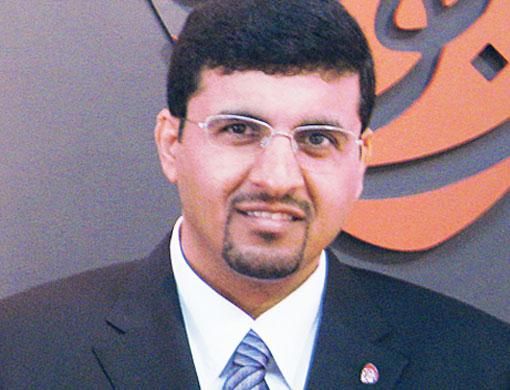Milan: The Abu Dhabi Tourism Authority (ADTA) says that tourism in the capital city has not been severely affected by the credit crunch, with the impact limited to a seven per cent decline in hotel guests in the last three months.
Nasser Saif M. Al Reyami, Tourism Standards Division Director at the ADTA, said that the situation remained stable, with occupancy rates as high as 87 per cent in Abu Dhabi's hotels.
"We are strongly supported by the Abu Dhabi government and will continue to work on improving our tourist attractions and business travel, which is a growing sector in Abu Dhabi.
"Seven per cent is not a large decline in comparison to last year's occupancy level, which ranged from 85 to 95 per cent," Al Reyami told Gulf News.
The ADTA is participating in the four-day Borsa Internazionale Del Turismo (BIT) in Milan.
Sharing the authority's booth are travel agencies Net Tours and DBA & Sons Travel and Tours, together with representatives from Emirates Palace Hotel.
"Italians are increasingly interested in visiting Abu Dhabi because it exhibits similar trends to Milan.
"Italian tourists like luxury and good service, and that is exactly what Abu Dhabi offers as a destination.
"They are especially interested in staying at the Emirates Palace hotel due to its luxury, and in visiting the diverse cultural projects that have been recently announced, such as the Louvre and the Shaikh Zayed Mosque," said Tiziana Spila, Product Manager for the Italian Idee Per Viaggiare International Tour Operator.
Spila was waiting to talk to one of the officials at the ADTA booth.
"I am very much interested in Abu Dhabi, it's a growing tourist location and a lot of Italians have shown interest in visiting it already. That's why I'm here today, to speak to ADTA about cooperating in their projects," Spila said.
While leisure tourism may be declining, the Emirates Palace Hotel says demand for business conferences remains high.
"We are definitely Abu Dhabi's hub for conferences now, with more than 10 different meetings taking place in 40 of our conference rooms each day. The Emirates Palace's original name was Conference Palace and it was especially designed to host local and international business delegates.
"The majority of our tourists arrive from Germany, the UK and the GCC region," a hotel employee said.
S.A. Kareem, senior sales executive for DBA & Sons Travel and Tours, spoke with 30 walk-in Italian clients during the first two days of the BIT.
"Most inquiries dealt with hotels in Abu Dhabi, visa procedures, site seeing, safari tours, culture and heritage.
"We have witnessed a decline of between 15 and 20 per cent in tourists visiting Abu Dhabi in the past three months.
"On average we currently receive around 200 people, 120 for leisure purposes and 50 to 60 for business tourism.
"Before the economic crunch we used to receive 350 tourists. It's a temporary situation that will soon be enhanced with ADTA's ongoing efforts to promote tourism in Abu Dhabi," said Kareem.
Net Group, which has worked closely with the ADTA since its founding in 2004, has been promoting tourism by highlighting natural attractions, mosques and hotels, while emphasising the luxury and safety of Abu Dhabi.
"In 2008, business travel in Abu Dhabi contributed up to 85 per cent and approximately 12 per cent was leisure.
"These percentages evidently declined by 2009 due to the economic crisis, but what makes up for this is that certain sectors are attracted to Abu Dhabi because of the business opportunities that are available there and in the region," said Anwar Abu Monassar, Group General Manager for Net Group.
Net Group received more than 100 walk-in customer inquiries each day during the BIT exhibition, and more than 45 requests for tours.
On the rise Tourism in Abu Dhabi- 1.6 million tourists visited Abu Dhabi in 2008.
- 16 per cent of these came from European countries.
- Around 270,000 tourists came to Abu Dhabi from various European countries in 2008. This represented a 26 per cent increase over the year before.
- Dh100 billion has been spent by the Abu Dhabi government on various cultural sites and infrastructure to attract tourists.











